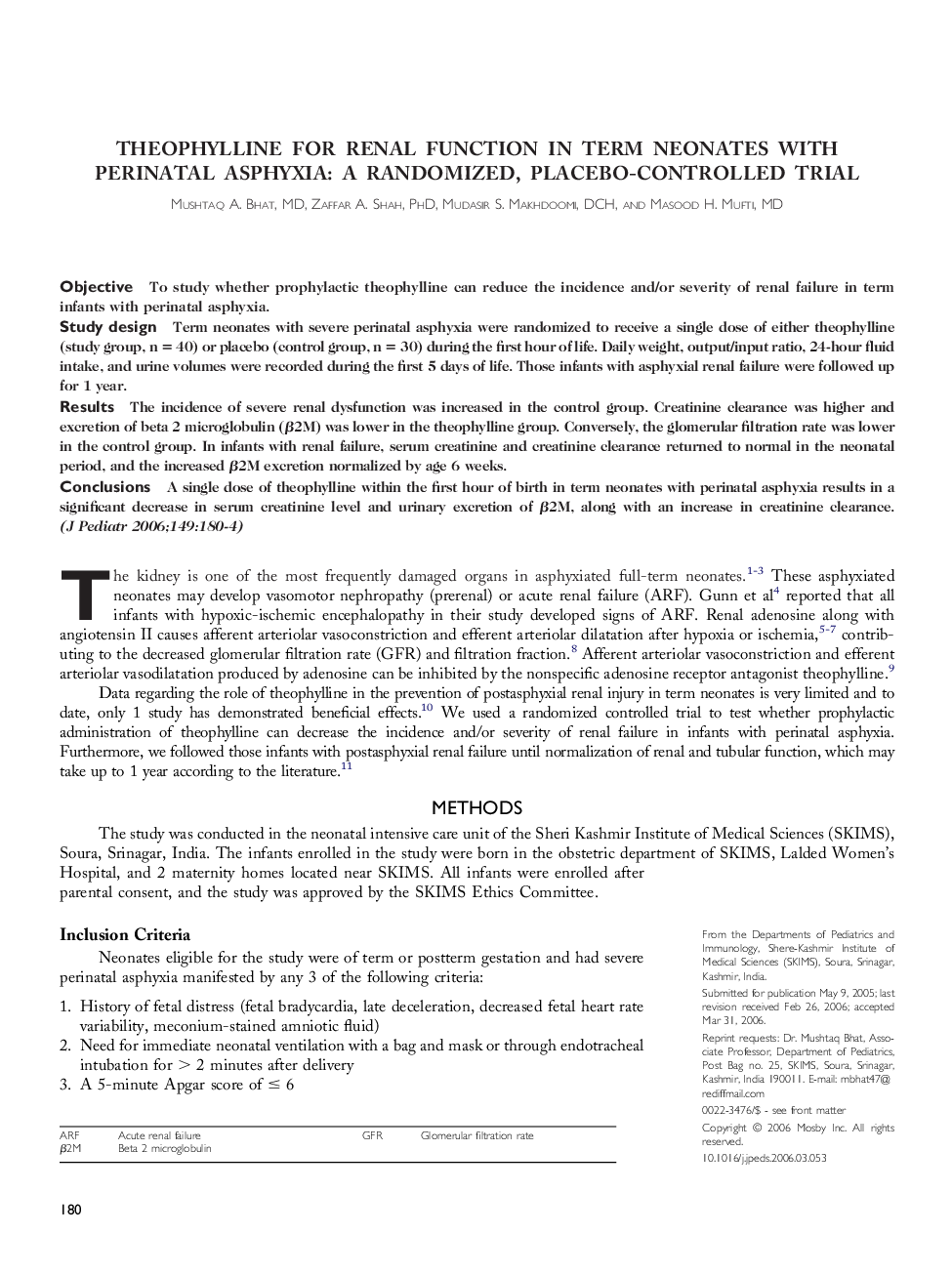| Article ID | Journal | Published Year | Pages | File Type |
|---|---|---|---|---|
| 4168848 | The Journal of Pediatrics | 2006 | 5 Pages |
ObjectiveTo study whether prophylactic theophylline can reduce the incidence and/or severity of renal failure in term infants with perinatal asphyxia.Study designTerm neonates with severe perinatal asphyxia were randomized to receive a single dose of either theophylline (study group, n = 40) or placebo (control group, n = 30) during the first hour of life. Daily weight, output/input ratio, 24-hour fluid intake, and urine volumes were recorded during the first 5 days of life. Those infants with asphyxial renal failure were followed up for 1 year.ResultsThe incidence of severe renal dysfunction was increased in the control group. Creatinine clearance was higher and excretion of beta 2 microglobulin (β2M) was lower in the theophylline group. Conversely, the glomerular filtration rate was lower in the control group. In infants with renal failure, serum creatinine and creatinine clearance returned to normal in the neonatal period, and the increased β2M excretion normalized by age 6 weeks.ConclusionsA single dose of theophylline within the first hour of birth in term neonates with perinatal asphyxia results in a significant decrease in serum creatinine level and urinary excretion of β2M, along with an increase in creatinine clearance.
